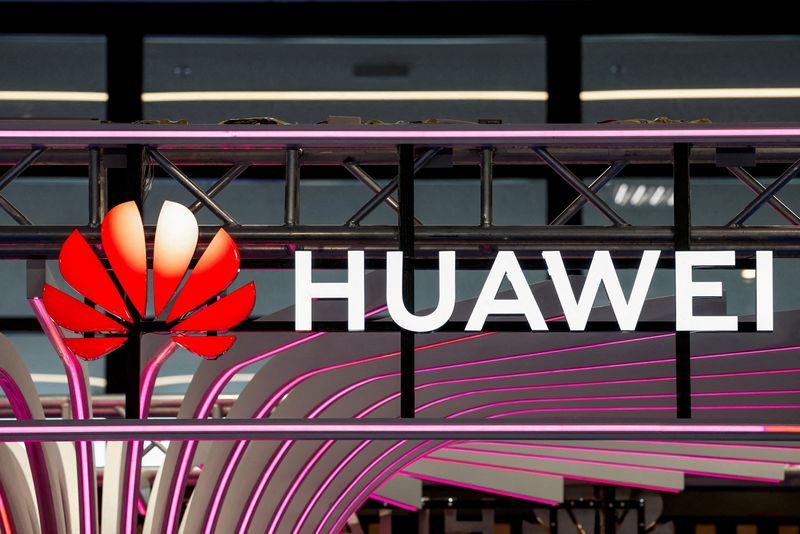By Karen Freifeld
NEW YORK (Reuters) -The U.S. Justice Department's long-running criminal case accusing China's Huawei of misleading banks about the tech company's business in Iran, among other charges, is heading toward a January 2026 trial.
At a status conference on Thursday in Brooklyn, New York, Assistant U.S. Attorney Alexander Solomon told U.S. District Judge Ann Donnelly that "settlement discussions ended in an impasse. We believe it would be prudent to schedule a trial date."
The judge said she thought a "good placeholder" date for the trial to start would be the beginning of January 2026.
The case, which has long strained U.S.-China ties, began in 2018 with a sealed indictment that led to Huawei CFO Meng Wanzhou being detained in Vancouver, Canada, on a U.S. warrant.
As part of a 2021 deal, the charges against Meng, who is also the daughter of the company's founder, were dismissed.
The broader case against Huawei is pending. Huawei has pleaded not guilty.
Solomon said prosecutors expect the trial to last four to six months.
Douglas Axel, a lawyer for Huawei, said the company has a pending motion to split the case, essentially separating the bank fraud charges from the allegations of trade secret theft. But the government suggested they would oppose a split and that the charges were linked.
Huawei was indicted in 2018 on bank fraud charges of misleading HSBC and other banks about its business in Iran, which is subject to U.S. sanctions.
In 2020, the Justice Department added more charges to the case, including that Huawei allegedly conspired to steal trade secrets from six U.S. technology companies and helped Iran track protesters during anti-government demonstrations in 2009.
Meng entered a deferred prosecution agreement with U.S. prosecutors in Sept. 2021 in which she acknowledged having made false statements about Huawei's Iran business.
After an unusual virtual hearing, she was allowed to fly to China from Canada. Shortly afterward, China released two Canadians it had been holding, and two American siblings who had been prevented from leaving the country were allowed to fly home.

Since 2019, the U.S. has restricted Huawei's access to U.S. technology, accusing the company of activities contrary to U.S. national security, which Huawei denies.
The company reported its fastest growth in four years in 2023, with a rebound in its consumer segment and income from new businesses like smart car components accelerating its recovery from the U.S. restrictions.